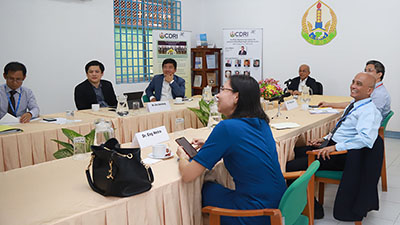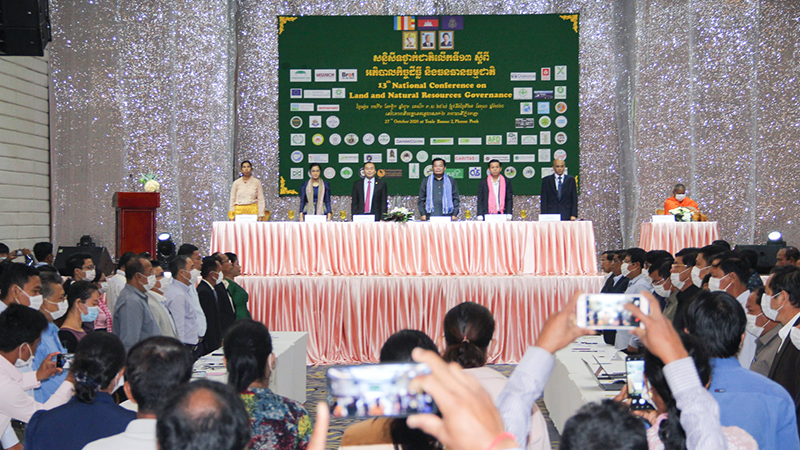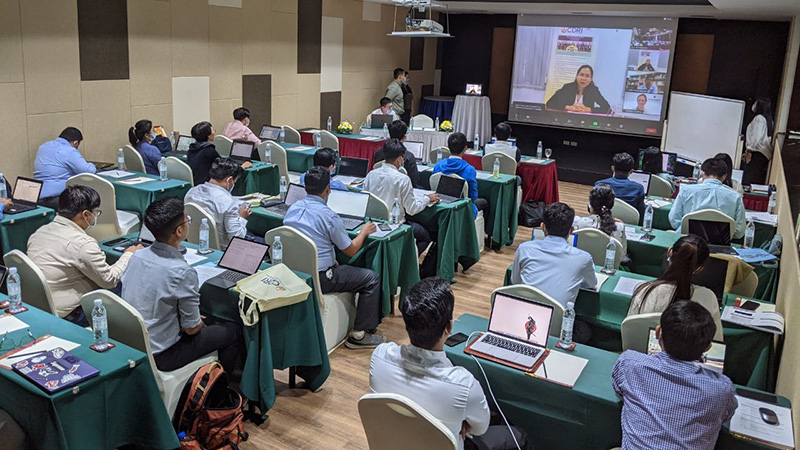
News
20 February 2024Joint Field Work on Climate Resilient Water Safety Planning
Cambodia remains highly vulnerable to the impacts of climate change due to its heavy reliance on climate-sensitive sectors such as agriculture, water resources, forestry, fisheries, and tourism. These sectors form the critical foundation of Cambodia’s economic growth and support the livelihoods of a significant majority of its population. In response to this vulnerability, CDRI’s Environment Centre is actively engaged in research to strengthen water resources management planning systems for inclusive climate-resilient WASH (Water, Sanitation, and Hygiene) services. Our researchers have already conducted practical and participatory analyses of tools and frameworks for risk and resilience assessment in water safety planning.
The Ministry of Industry, Science, Technology, and Innovation and the Ministry of Rural Development recently developed new guidelines for climate-resilient water safety plans (RC-WSP). Yet it remains to be fully understood how these guidelines can help achieve climate-resilient and inclusive water safety planning in Cambodia. To address this, the Environment Centre conducted joint fieldwork in Pursat province from 20-22 February to assess WSP committee members' understanding and implementation of the guidelines and observe local water sources.
Collaborating with partners such as the Cambodia Water Supply Association, WaterAid Cambodia, East Meet West, and the Institute for Sustainable Future of the University of Technology Sydney, our researchers gained valuable insights into community knowledge about water safety plan, potential hazards, and risks to water quality. After this fieldwork, our researchers organised a debrief session with partners at CDRI to analyse the findings and plan the next steps.



